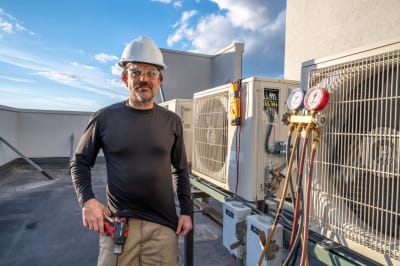Welders in Honolulu help make the entire community better by contributing to the development of key infrastructures such as buildings, bridges, and highways. Thanks to their knowledge of fabricating metal under high temperatures, they will always be crucial to the growth of cities worldwide and in high demand.
To become a welder in Hawaii, you must obtain a high level of training, preferably at a respectable institution. While there is plenty of such institutions in and around Honolulu, Hawaii, finding the best ones can be challenging.
This is why below we have curated a list of the most prominent welder schools in and around Honolulu, Hawaii, along with a few words on what makes them worthy of consideration.
How to Become a Welder in Honolulu
Honolulu and Hawaii, in general, have very specific licensing provisions for their welders. Still, before they even get to that stage, aspiring welders in the area must first obtain proper training from an accredited training program.
Most of these programs usually ask that applicants already possess a high school diploma or GED. Most also have a cutoff age of around 17 - 18 at the very least.
Certification comes after graduation, but that is usually done to make the job-seeking process a lot easier, seeing as most employers prefer certified welders over those who are not.
Lastly, welders in Honolulu must obtain a license known as the C-56 Contractors License to start taking on contracts.
Top Welding Schools in Honolulu, Hawaii
There are three main institutions in and around Honolulu, Hawaii, where aspiring welders receive the best training. These include Honolulu Community College, Hawaii Community College, and Kauai community college.
All have their own benefits and unique characteristics, which we see below.
Honolulu Community College
Honolulu, HI Online + Campus
At Honolulu Community College, students enjoy a comprehensive training program emphasizing hands-on sessions and creative thinking.
Tuition
$131 - $345 per CreditContact
874 Dillingham Blvd., Honolulu, HI 96817
(808) 845-9211
honcc@hawaii.edu
Hawaii Community College
Hilo, HI Online + Campus
Thanks to years of experience and a team of world-class instructors, Hawaii Community College remains one of the most prominent destinations for aspiring welders in Hawaii.
Tuition
$3,204 - $8,340Contact
1175 Manono Street · Hilo, HI 96720-5096
(808) 934-2710
hawccar@hawaii.edu
Kauai Community College
Kauai, HI Online + Campus
Kauai Community College is one of the most prominent institutions in Hawaii, providing comprehensive training for interested individuals to become accredited welders.
Tuition
$3,252 - $8,388Contact
3-1901 Kaumualii HWY Lihue, HI 96766
(808) 245-8225
arkauai@hawaii.edu
Explore nearby states for training and education:
Explore detailed steps and the state’s licensing requirements:





